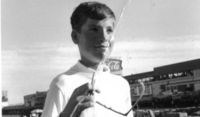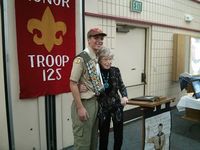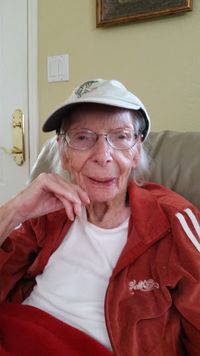
Before World War II, most American families lived in a single room, often without running water, let alone electricity. Millions were plunged into such conditions by the Great Depression, and this scarred people for life. It was reflected in their attitude toward living, toward money, and toward pleasure. It is the nearly universal experience of this nation’s immigrants.
My American baby boom generation is a product of those attitudes. We grew up in rooms as big as many of our parents’ houses, surrounded by luxuries they could not have imagined when they were kids. We took what was needed for granted, and grabbed for what we wanted. Our parents gladly indulged us, living vicariously, conscious that life is short, that time is fleeting, and hoping it would render us generous, grateful, and loving in our turn.

What else can you call the modern senior center? It’s sold as superior to living at home. It’s said to be clean, there’s running water and electricity, and there’s a staff to take care of physical needs. But not emotional needs, not spiritual needs, not the need for companionship and belonging. It’s all about animal needs, not human needs.

The need for constant, and accelerating, hands-on medical care is what leads people to the Last Ghetto. We measure the success of a center by the amount of physical care provided to patients. We care nothing for spiritual or mental health.
My mother is in an “excellent” center right now. (I did not choose it, but I question whether I could have chosen anything better.) She will be 92 next month, and has suffered from dementia for a decade. By conventional measures it’s an excellent center, a white home on a cul de sac a mile from where she lived for over 40 years. It is clean, the staff is patient. Physical needs are met, always.
But even someone with dementia has emotional and spiritual needs. My mother has no one to talk to. She’s blind and can’t see the TV that is left on all day for entertainment. She cries when I call, demands on good days that she be taken away from the place and, on bad days, that I fly cross-country right now to visit. When people do visit, of course, she crawls into an emotional shell, helpless and unresponsive.
“How do I get out of here?” she asks plaintively. We both know the answer to that, but neither of us can say it out loud.

Caring for your mother doesn’t pay. It’s one of the jobs Americans don’t want to do. Those who do it are often recent immigrants, people who can’t find other jobs. If they are native-born, they may be deeply resentful of their own situation, of how little they make compared with how much their patients, the families, or the government is forced to pay for this “care” – an average of $8,000 per month. That’s where the thefts come from, and the abuse. It’s a hobo jungle, and your mother is helpless against those who are able bodied.
Meanwhile the need for what is called “senior care” or “senior living” keeps rising. Every city in America is dotted with centers, many with brand names. Most are organized as Real Estate Investment Trusts, a legal structure that aims to extract the maximum profit from the business, every year, and hand that cash to shareholders. It’s a growth market run like an oil pipeline. It is a racket.
This is where your mother has gone, it’s where your father is if he’s still around, and it’s where you’re headed unless something is done to change it, starting right now.

All this has to be done, unless you want a lifetime of hard work to leave you broken and helpless, in a ghetto of someone else’s making, at the end of the end. This is the last great struggle of our lives and one which, if successful, will yield the best present we can possibly give to our own children, dignity in old age.
Death takes us all, in time, and there’s no good way to go. “This seems real clear to me, no one dies with dignity. We just try to ignore the elephant sometime.”
What will your life be like when the elephant’s footsteps grow louder in your ears, when the footsteps can no longer be ignored?










Great post Dana. Touching and thought provoking.
Regards,
Vikram
Great post Dana. Touching and thought provoking.
Regards,
Vikram
Wow, this heart-wrenching and true! I worked in home health for a number of years and had to make many visits to care centers. The patients just do not get enough attention, period! It is shown in dementia patients that the more they have a routine and can stay in their environment they are used to (own home), they will do better over all. Hopefully with the advances in technology that is more affordable and a better choice than a care center.
Great article!
K. Thiessen, BS
http://www.homehealthgear.com
Wow, this heart-wrenching and true! I worked in home health for a number of years and had to make many visits to care centers. The patients just do not get enough attention, period! It is shown in dementia patients that the more they have a routine and can stay in their environment they are used to (own home), they will do better over all. Hopefully with the advances in technology that is more affordable and a better choice than a care center.
Great article!
K. Thiessen, BS
http://www.homehealthgear.com